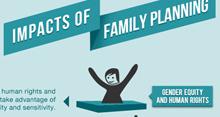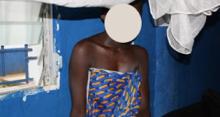Baby (Not) on Board

“Selfish... Neurotic... Irresponsible... Immature... Unfeminine... Unfulfilling... Materialistic... Uptight... Deviant” — all words I have heard to characterize my decision to not have children, a decision transforming me into a target of one of society’s remaining and widely held prejudices.
Baby (Not) on Board: The Last Prejudice?, addresses the question of why the existence of women who choose maternal independence over child-rearing angers or offends so many people and institutions. The work presented here is part of a continuing exploration of our culture’s pejorative views about women without kids. For Baby (Not) on Board: The Last Prejudice?, I hand-embroidered representative negative comments on baby dresses using red thread to create scarlet letters. Gathered from interviews with childless women, online research, and personal experience, the statements taunt and accuse, and are typical of an endless flow of critical statements that seem to be growing bolder even as non-traditional families are gaining greater acceptance.
In the course of my research I have spoken with many women, both in formal interviews and casual conversations. Often I chatted with women while working on the embroidery pieces, which are very portable, as I commuted to and from my teaching position at Columbia College Chicago. The responses I got were very strong. Many women, often those with children, shared with me their own stories about having felt trapped or seduced by the myth of “having it all.” Others told me about the pressures they experienced to have children before they had children, from family members and others in their communities.
My interlocutors raised many questions about the nature of the prejudice against women (rarely men) who have chosen not to, or who cannot for one reason or another, follow society’s traditional childbearing path. These questions presented the case for a better, broader understanding of this cultural bias. Lately, more gay and lesbian friends have spoken with me about the recent pressure they have felt to have children.
The Reproduction Imperative
“The key reason marriage existed at all, in any society, at any time, was because sexual relationships between men and women produced children,” Charles Cooper argued in defense of California’s notorious Proposition 8, which bans same-sex marriage, in California’s 9th Circuit court. Cooper, who is lead counsel for Prop. 8-sponsor Protect Marriage, continued with, ”When a relationship between a man and a women becomes a sexual one, society immediately has a vital interest in it for two reasons. One, society needs the creation of new life for the next generation; but, secondly, society’s vital interests are actually threatened by the possibility that an unintentional and unwanted pregnancy will mean the child born out of wedlock is raised by its mother alone, and this directly implicates society’s vital interests.”
Does he mean having children is the only reason to have a relationship?
For myself, I am clear I couldn’t have the life I live, which I love, had I children. Of course, many women manage to juggle kids, careers and other activities all at once, but many have told me about the difficulties they endured doing or trying to do so, and the importance of resources like family to help out, and income sufficient to hire help.
Miriam Schaer is a Brooklyn-based multimedia book artist, and a Lecturer in the Interdisciplinary MFA Program in Book and Paper at Columbia College in Chicago. Her work has been in numerous museum shows including the Museum of Art and Design and The Museum of the Bible in Art, both in Manhattan, and the Everson Museum in Syracuse, NY. Her work is represented in numerous collections, including the Arts of the Book Collection at Yale University; the Mata & Arthur Jaffe Collection: Book as Aesthetic Object at Florida Atlantic University, Boca Raton, FL; the Brooklyn Museum of Art; and the Sallie Bingham Center for Women's History & Culture, Duke University, Durham, NC. Her work has earned a NYFA Artists Fellowship, inclusion in the Elizabeth A. Sackler Center for the Feminist Art Base at the Brooklyn Museum, and representation at the Cheongju International Craft Biennale in South Korea. She was artist-in-residence for the 2007 Imagining the Book Biennale at the Library of Alexandria in Alexandria, Egypt. Ms. Schaer frequently uses garments such as girdles, bustiers, brassieres, and aprons as well as children’s' clothing as materials for unique and limited edition books. The fabrics are manipulated and embellished to serve as enclosures, inside which hand-made books explore feminine, social, and spiritual issues. You can see more of her work at www.miriamschaer.com
Related Content
|
All women should have the right to make informed choices about childbearing and access reproductive health services. Yet in too many places, the right to control one’s body and destiny is not recognized. |
Christy is in her late thirties and comes from the southeastern part of Nigeria. She is unable to conceive, and it is causing friction in her marriage. |
Kavita Ramdas explains how limited access to contraceptive methods for women around the globe helps to maintain and further aggravate the world’s impoverished state. |
Tecee Boley's podcast reports the toll unsafe abortions takes on women in Liberia—a country where elective abortions remain illegal. |



